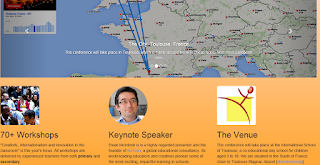Lockdown is continuing to be very
hectic and intense for teachers. I have asked my online teacher network about
what lockdown has meant for them and this is what I was told…
Lockdown has highlighted the
importance of students’ intrinsic motivation and home support and the large
impact they have on students’ achievements. It has also shown that teaching
needs to facilitate independence. For instance, some of the quietest students
have been seen to produce amazing work that they would never have produced in
class for fear of drawing attention to themselves.
However, lockdown has also sparked
creativity in many teachers, parents and pupils and in some case made parents
realise what teaching really is about.
It has also created many opportunities
for teachers to upskill, learn about blended learning, online learning and
reflect on our practice.
Pedagogy and new tools-A few pointers
Focusing on fewer aspects of the language
and guiding students’ practice to ensure complete mastery and success has come
out as the biggest priority
Acknowledging the need for more
repetition, practice and pace when learning vocabulary.
Understanding what it looks like from
a learner’s perspective, keeping things simple and along a linear organisation
allowing the teacher to reduce undue technical difficulties for pupils.
Developing a principled approach like
the one adopted by @BarriMoc : retrieval, short video presentation,
practice tasks (dictation, translation, gap-fill based on the content), reading
task and a writing or speaking task using Flipgrid . Everything is then put in one
document with any resources hyperlinked to avoid needing to open and flick
between multiple tabs including Textivate or Quizziz .
Exploring the use of Bitmojis and sharing
on the Bitmoji Craze for Educator FaceBook group
Taking time to test new tools, like
Genial.ly
Turning a book-based IGCSE SoW into a
skill-driven one so that learning objectives and assessment align
Twitter conversations
Lockdown and teaching remotely have
highlighted …
The importance of high impact, low
stakes testing for informing planning as well as improving student retrieval
and retention.
That the children love to be able to
“pause” the teacher on Loom so pace of explanations during
direct instruction may need to be adapted.
That learners benefit from creating
sentences and actively applying vocab and grammar rules along with their own
creativity. This gives all they/we are doing a sense of value, purpose and
meaning. It creates a bond and link of learning trust between us even though we
are remote.
That in online lessons, it is a good
idea to include table of language chunks that pupils can use as a writing
scaffold. Pupils can add in suggestions too. Extension vocabulary and
structures need to be labelled explicitly. A simple example of an activity is
to get pupils to read out their Target Language phrase. Teacher highlights (on
zoom) . Another pupil translates. Creative
follow-up is then offered for further practice.
That your instructions are never
clear enough! It has confirmed more than ever the importance of quality
instruction, explanations, and modelling with a lot of comprehensible input and
chunks instead of single words. Voice record pro is great for making own listening.
Finally, the CPD…
There have been so many opportunities
for all teachers and especially language teachers to upskill themselves to
deliver effective language lessons remotely. I have collated many of them in a Wakelet
here, with
the most prolific sources of CPD being ALL, the Association for Language Learning , Linguascope, Joe Dale’s MFL Twitterati
group (#mfltwitterati on Twitter) and the Global Innovative Language TeacherFacebook group created by Gianfranco Conti and Dylan Viñales.
Time to join the conversation!





